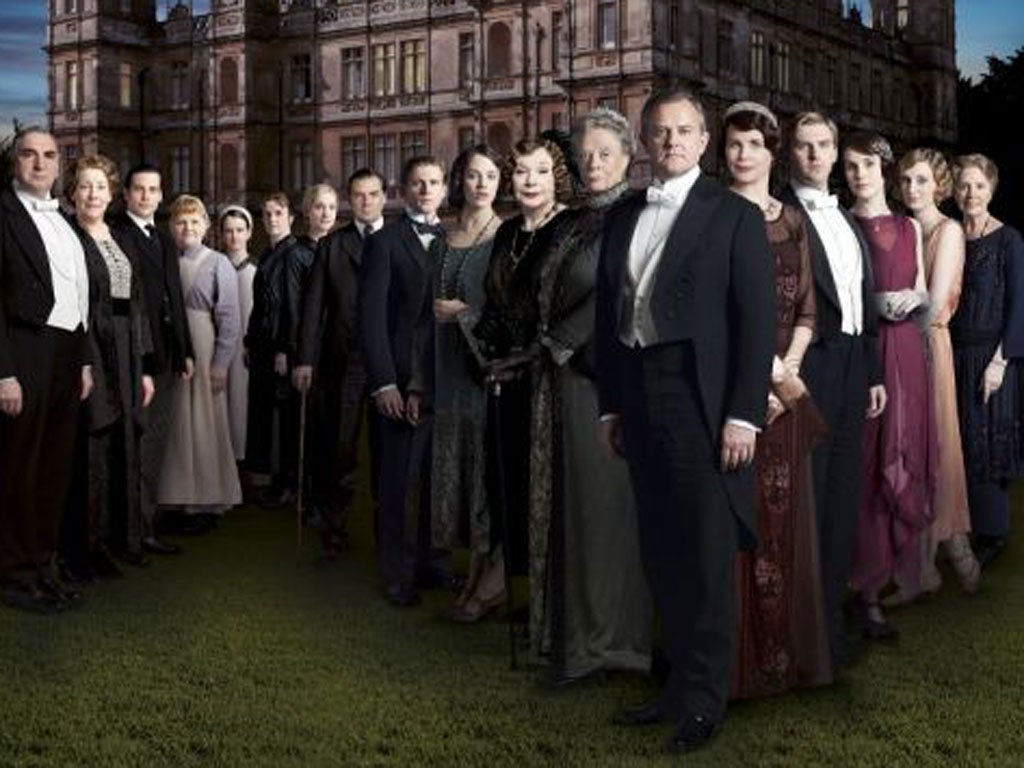From Downton Abbey to Coronation Street, when life interferes with art, it’s a challenge for the writer
The departure of cast members presents a tricky problem to screenwriters


The first episode of the new Downton Abbey season opened with much wailing and gnashing of teeth. Some of it was due to the death of the dashing young husband and new father Matthew Crawley. But there seemed to be even more wailing and teeth-gnashing about the unexpected and sudden departure of Lady Cora’s personal maid, Sarah O’Brien.
The reason for both death and departure was contractual. One problem with Downton’s success is that it gives fame to its stars, and fortune is not far behind. Dan Stevens, who played Matthew, was killed in a car crash after his on-screen wife, Lady Mary, gave birth, because the actor was lured by the bright lights of Broadway. Siobhan Finneran, who played Sarah O’Brien, had seen out her contract and wanted new challenges. Fame and more particularly film had already taken from us Jessica Brown Findlay, who played Lady Sybil. Alas, another grisly death. As Bette Davis memorably enunciated in the film Death on the Nile, “this place is beginning to resemble a mortuary.”
It must all have been a bit of a challenge for Downton writer Julian Fellowes, not least with O’Brien, who had seemed remarkably loyal to her mistress in recent times following an early indiscretion, and hardly the sort to abscond in the night to a new employer between seasons.
It’s a tricky one, these vanishing actors, even in a series with some bewildering storylines (whatever happened to the flame of Lady Edith who claimed to be a long-lost cousin? He simply disappeared. A film offer? A West End run? A voice-over offer he couldn’t refuse?)
Then again, things could be a lot worse. How Julian Fellowes must be glad he isn’t writing for Coronation Street. Death does not become the Street, but holidays – they’re all the rage. Ken Barlow, the Street’s longest serving character, has jetted off to Canada, perhaps mindful that the actor playing him, William Roache, has been accused of sex offences. Poor Kevin Webster also got the holiday bug, eager to explore Germany while his alter ego, actor Michael Le Vell, was accused and cleared of sex-offence charges. Presumably, Kevin will now be allowed to tire of all things Teutonic and belatedly realise the pleasures of a stay-cation in Salford.
Downton Abbey and Coronation Street are currently, for very different reasons, blurring further those already blurred boundaries between TV drama and the reality imposed upon them by difficulties behind the camera. Be it court cases or contracts, sudden departures of leading characters demand an imaginative response from the writer. Personally, I favour a sudden holidays over a melodramatic death, especially, as in Ken Barlow’s case, he had a grandchild in need of care in Canada.
Suspension of disbelief in the viewer can only be tested so far. The writer’s greatest challenge in popular TV drama today is how to write out a much-loved character without resorting to a sentimental demise or expensive foreign travel.
The US gets the Abi habit. The BBC needs to, too
Congratulations to Abi Morgan for winning an Emmy in America this week for her scripts for The Hour. The drama series that originated on the BBC beat off not inconsiderable competition from Tom Stoppard and David Mamet. I applaud the decision. Morgan gave us a thrilling and brilliantly acted newsroom period drama with a cast to die for, which included Dominic West, Ben Whishaw and Romola Garai. All that and now an Emmy too.
Yep, I can sure understand why the BBC decided to axe the series. It’s not the sort of decision that Parliamentary committees tend to concern themselves with when they quiz BBC executives, but the next time MPs grill the top BBC brass about high salaries, they might wish to ask them about some irritatingly bizarre programme decisions too – starting with this one. Even better, let’s hope that approval from across the Atlantic will concentrate BBC minds and see the series recommissioned.
There’s no businesswoman like a showbusiness woman
And congratulations too to Nica Burns of Nimax Theatres, who juggles being West End producer, co-owner and chief executive of six West End theatres and producer of the Foster Comedy Awards in Edinburgh. She is Private Business Woman of the Year in the UK Private Business Awards. The Culture Secretary, Maria Miller, recently asked the arts to prove their economic worth. Nica Burns now has validation that running a theatre is a business, as is producing a play and a comedy awards. Maria Miller should seek her out for a chat.

Join our commenting forum
Join thought-provoking conversations, follow other Independent readers and see their replies